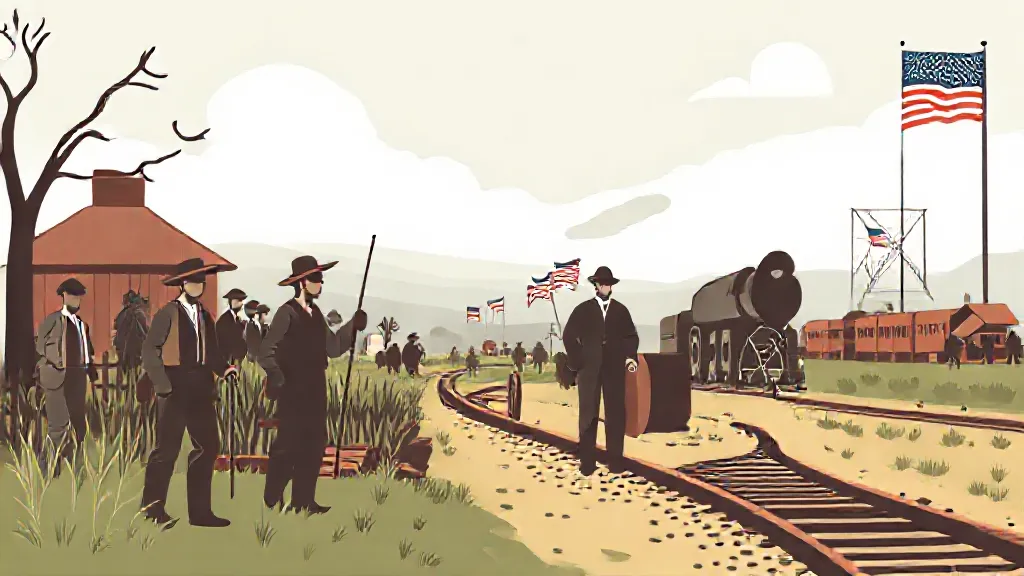The Populist Movement, which emerged in the late 19th century, represented a significant political and social reaction to the rapid industrialization and urbanization of America. Its goals were rooted in the struggles of farmers and laborers who felt marginalized by the economic elite and the political establishment. Understanding these goals provides insight into the broader socio-economic context of the time and the movement's lasting impact on American politics.
Economic Equity and Agrarian Reform
At the heart of the Populist Movement was a demand for economic equity, particularly for farmers who were facing declining prices for their crops and increasing debts. The movement sought to address the grievances of rural America by advocating for policies such as the regulation of railroad rates and the establishment of a graduated income tax. These measures aimed to alleviate the financial burdens placed on farmers and ensure fair compensation for their labor.
The Populists believed that economic reform was essential to restoring the prosperity of the agricultural sector.
Political Representation and Direct Democracy
Another critical goal of the Populist Movement was to enhance political representation for ordinary citizens. The movement called for reforms such as the direct election of U.
S. Senators and the implementation of initiatives and referendums. By promoting direct democracy, the Populists aimed to reduce the influence of corrupt political machines and ensure that government policies reflected the will of the people.
This push for greater political participation resonated with many Americans who felt disenfranchised by the existing political system.
Monetary Reform and the Free Silver Movement
Monetary reform was a central issue for the Populists, who advocated for the free coinage of silver as a means to increase the money supply and combat deflation. The belief was that an expanded currency would lead to higher prices for agricultural products and ease the financial strain on farmers.
This demand for "free silver" became a rallying cry for the movement and was closely tied to the broader economic struggles of the time. The Populists argued that the gold standard favored the wealthy elite at the expense of the working class.
Labor Rights and the Support of Workers
The Populist Movement also sought to align itself with the labor rights movement, recognizing the shared struggles of farmers and industrial workers.
The Populists supported the right to organize and advocated for better working conditions, fair wages, and an eight-hour workday. By uniting these two groups, the movement aimed to create a broader coalition for social and economic justice. This solidarity highlighted the interconnectedness of rural and urban struggles, as both groups faced exploitation by powerful economic interests.
Anti-Monopoly Sentiment and Corporate Regulation
A significant aspect of the Populist agenda was its strong anti-monopoly sentiment. The movement emerged during a time when large corporations and monopolies were consolidating power and influence over the economy and politics. The Populists sought to dismantle these monopolies through government intervention and regulation.
They believed that breaking up corporate power was essential to restoring competition and ensuring that small farmers and businesses could thrive in a fair marketplace.
Cultural and Social Dimensions of the Movement
Beyond economic and political goals, the Populist Movement also had cultural and social dimensions. It sought to challenge the prevailing social hierarchies and promote a vision of democracy that included all citizens, regardless of their economic status.
The movement's rhetoric often emphasized the dignity of labor and the importance of community solidarity. This cultural aspect resonated with many who felt alienated by the rapid changes brought about by industrialization and urbanization.
Legacy and Influence on Future Movements
The goals of the Populist Movement laid the groundwork for future political movements in America, including the Progressive Movement and later labor rights campaigns.
Many of the reforms advocated by the Populists, such as direct democracy and monetary reform, found their way into mainstream political discourse. The movement's emphasis on grassroots organizing and the importance of addressing the needs of ordinary citizens continues to influence contemporary political movements that seek to challenge corporate power and advocate for social justice.
Conclusion: The Enduring Relevance of Populist Goals
In conclusion, the goals of the Populist Movement were multifaceted, addressing economic, political, and social issues that resonated deeply with many Americans in the late 19th century.
The movement's legacy serves as a reminder of the ongoing struggles for equity and representation in the American political landscape. As contemporary issues of economic inequality and political disenfranchisement persist, the lessons of the Populist Movement remain relevant, urging us to consider how we can work towards a more inclusive and equitable society.
